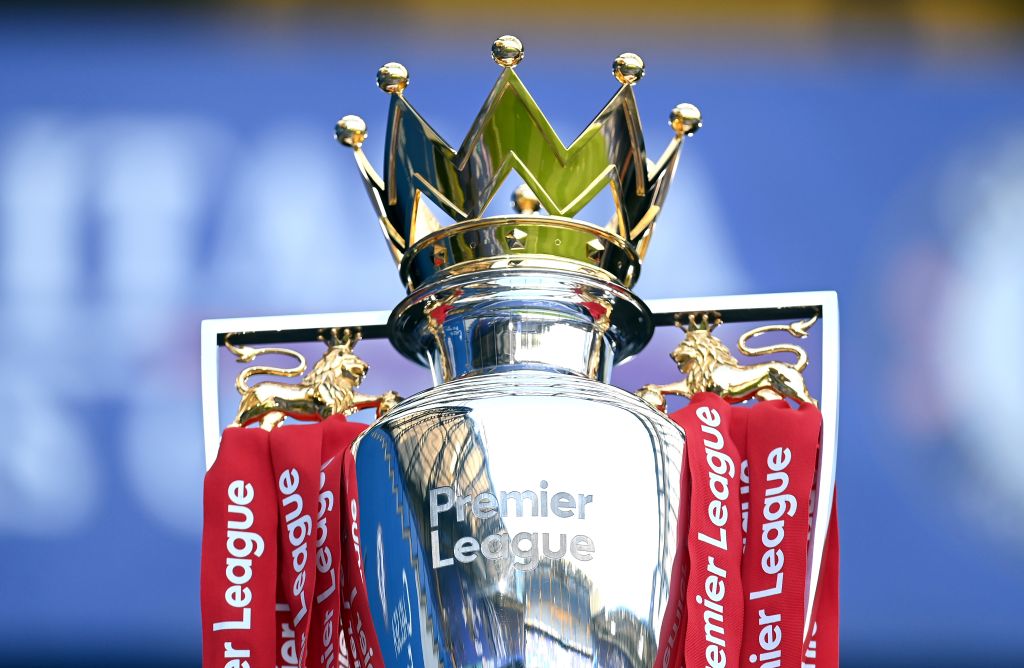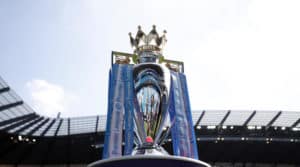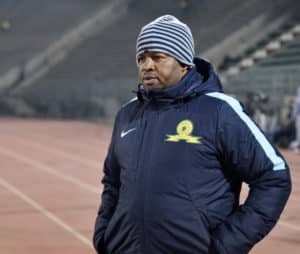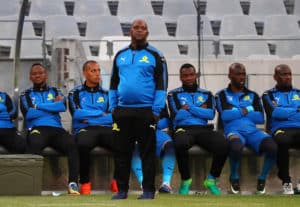EFL chairman Rick Parry says he wants to protect the future of clubs as he revealed the details behind ‘Project Big Picture’.
The radical plans, which came to light on Sunday, propose a drastic overhaul of the current English structure, with a move to an 18-team Premier League top flight and greater powers to the ‘big six’ among them.
The Premier League has already expressed its disappointment at Parry’s support of the ‘damaging’ plans, but Parry went on the front foot to explain why he feels change is necessary.
One of Project Big Picture’s pledges is to hand £250 million to EFL clubs in order to mitigate the current coronavirus pandemic which has locked fans out of football grounds since March.
‘The creation of a short-term rescue fund of £250m to replace lost match-day revenue this season and last will enable every club to plan to continue to play and move forward with certainty,’ Parry said on Sunday.
‘As an advance against increased future revenues this is not a loan and therefore does not need to be repaid. It could never have been repaid under the existing terms and revenue of the English pyramid.
‘Now is the time to address both the long-term health of the game and the most challenging short-term crisis it has ever faced. Project Big Picture provides a new beginning which will revitalise the football pyramid at all levels. This new beginning will reinvigorate clubs in the lower leagues and the communities in which they are based.’
After reports emerged on Sunday lunchtime, the EFL admitted it had been working on an ‘innovative proposal’ with a number of Premier League clubs, with the aim of ‘resetting the economics and governance across the English football pyramid and in the process, protect the game in both the short and long term’.

Other proposals include the abolition of the League Cup and Community Shield, with 25% of the Premier League’s annual income going to EFL clubs.
It is a plan which the PA news agency understands is being driven by Parry and not, as suggested, champions Liverpool and Manchester United, although both clubs are engaged with the radical reform and their main rivals are likely to follow.
Chairman Parry, one of the founders of the Premier League, added: ‘The need for a complete rethinking regarding the funding of English professional football predates the Covid-19 crisis. Discussion and planning around “Project Big Picture” has been ongoing for quite some time, unrelated to the current pandemic, but now has an urgency that simply cannot be denied.
‘The revenues flowing from the investment and work of our top clubs has been largely limited to the top division creating a sort of lottery, while Championship clubs struggle to behave prudently and Leagues One and Two are financially stretched despite enormous revenues English football generates. This plan devised by our top clubs and the English Football League puts an end to all of that.
‘The gap between the Premier League and the English Football League has become a chasm which has become unbridgeable for clubs transitioning between the EFL and Premier League. In 2018-19, Championship clubs received £146m in EFL distributions and Premier League solidarity payments. This compares with £1.58bn received by the bottom 14 Premier League clubs – 11 times as much.’
The Premier League, though, was not immediately impressed.
‘In the Premier League’s view, a number of the individual proposals in the plan published today could have a damaging impact on the whole game and we are disappointed to see that Rick Parry, chair of the EFL, has given his on-the-record support,’ read a Premier League statement.

‘The Premier League has been working in good faith with its clubs and the EFL to seek a resolution to the requirement for Covid-19 rescue funding. This work will continue.
‘Football has many stakeholders, therefore this work should be carried out through the proper channels enabling all clubs and stakeholders the opportunity to contribute.’
If Parry’s plans went through, there would also be a revamp of the Premier League voting system, abolishing the threshold of 14 votes to pass any resolution, and the introduction of a relegation playoff for the 16th-placed club against teams finishing third, fourth and fifth in the Sky Bet Championship.
Accrington chairman Andy Holt believes without major change the EFL is on a ‘one-way ticket to disaster’.
‘There was always going to be a price to pay. Not heard a jot from EFL about this and much of the detail is missing,’ he wrote on Twitter.
‘An attachment to earnings order at 25 per cent is better for championship by far. I’m not automatically opposed or horrified by this.
‘The EFL is on a one-way ticket to disaster as things stand. It cannot survive in the existing set-up with the Premier League.
‘It will fail and break up as clubs fail. I’m glad for once everyone round the table accepts this.’
There was dissent from elsewhere, as the DCMS said in a statement: ‘We are surprised and disappointed that at a time of crisis when we have urged the top tiers of professional football to come together and finalise a deal to help lower league clubs there appear to be backroom deals being cooked up that would create a closed shop at the very top of the game.
‘Sustainability, integrity and fair competition are absolutely paramount and anything that may undermine them is deeply troubling. Fans must be front of all our minds, and this shows why our fan led review of football governance will be so critical.’
Reacting to the developments, the Football Supporters’ Association said it ‘notes the report with grave concern’ and added: ‘Football is far more than a business to be carved up; it is part of our communities and our heritage, and football fans are its lifeblood. As football’s most important stakeholders, it is crucial that fans are consulted and involved in the game’s decision-making.’





